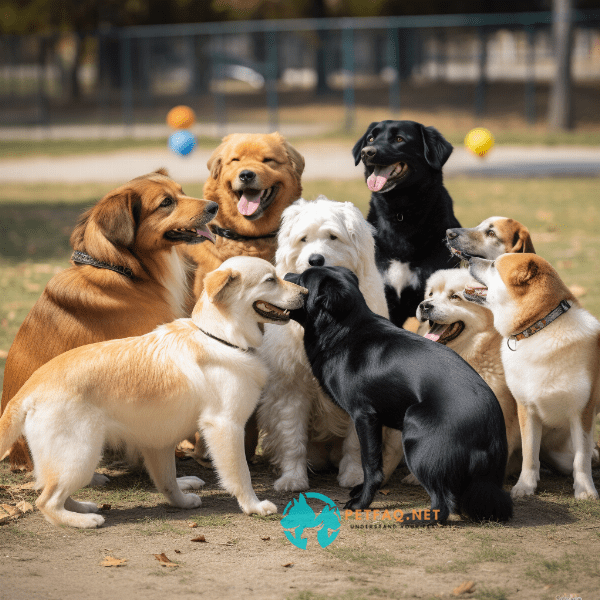Socialization is a crucial aspect of a dog’s development and plays a vital role in shaping their behavior. Proper socialization can help dogs become well-adjusted and confident members of society, while a lack of socialization can lead to behavior problems such as fear, anxiety, and aggression. Here are some of the ways that socialization is important for dog behavior:
1. Reduces fear and anxiety: Socialization can help to reduce fear and anxiety towards new people, animals, and environments. Exposing dogs to a variety of different stimuli during their critical socialization period, typically between 3 and 14 weeks of age, can help them learn that new things are not scary or threatening.
2. Prevents aggression: Proper socialization can also help to prevent aggression towards people and other animals. Dogs that have not been properly socialized may perceive new people or animals as a threat, leading to fear-based aggression.
3. Improves communication skills: Socialization can help dogs learn how to communicate with people and other dogs in a positive and appropriate way. Dogs that have been properly socialized are more likely to use appropriate body language, vocalizations, and play behavior when interacting with others.
4. Builds confidence: Socialization can help dogs build confidence and become more comfortable in a variety of different situations. Exposing dogs to new people, animals, and environments can help them learn that new experiences are not scary or threatening.
5. Enhances training: Dogs that have been properly socialized are generally easier to train because they are more receptive to learning new things. Socialization can help dogs develop a positive attitude towards learning and can help them learn new skills more quickly and effectively.
In conclusion, socialization is an important aspect of dog behavior that can have a significant impact on a dog’s well-being and quality of life. Proper socialization can help dogs become well-adjusted and confident members of society, while a lack of socialization can lead to behavior problems such as fear, anxiety, and aggression. Dog owners should work with their veterinarians or certified dog trainers to develop a socialization plan that is tailored to their individual dog’s needs and personality.
Read more:The Social Side of Dog Behavior

Related Questions
- How can I teach my dog to not pull on the leash during walks?
- What are some free tips for teaching my dog to not bark excessively?
- How can you train a hunting dog to work with other dogs and hunters in the field?
- Canadian Working Dog Federation (CWDF): This organization offers Schutzhund/IPO/IGP titles and competitions for several breeds in Canada.
- What are some common dog training techniques used in classes?
